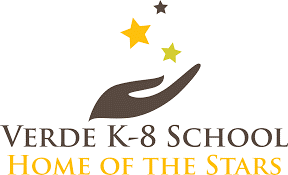Last school year, the Verde Seneca team piloted a data-sharing practice for students on our caseload that focused on elevating student voice and centering the experience of the family. Three times a year, the student’s treatment team (consisting of the student, the caregiver(s), the Seneca staff, the student’s teacher, and any other school staff or significant adults that support the student) meets to hear feedback from the student and caregiver about what is working and where we need to shift our approach. As part of this conversation, we review student progress towards treatment goals. The data is analyzed as a measure of how well the whole team is doing to address and support the student and family with making and maintaining progress. The meeting is intentionally structured to prioritize the student and caregiver’s experiences and voices. Here are some examples of how we’ve shifted our practice: holding pre-meeting interviews with the youth and caregiver, giving the student and caregiver an opportunity to respond to any question posed to the team before asking other team members, and providing a post-meeting survey to gage the student and caregiver’s experience of feeling understood by the team. The student, caregiver, and school team members responded positively to this new practice. Post meeting surveys indicated that the youth and caregiver felt that their needs were understood, that the treatment goals were relevant, and that the process centered their experience. Responses from school staff indicated that the meeting provided insight and tools to better support the student and caregiver. Based on this feedback, we are rolling this data-sharing practice out across our other West Contra Costa UE school partnerships this year.
|
I’m excited to highlight our ongoing partnership with Verde Elementary School, part of West Contra Costa’s Unified School District! Seneca began its partnership with Verde seven years ago with one Unconditional Education Coach who focused on supporting school-wide climate and culture. Today, our UE Verde program has grown to include a UE coach, a behavioral support specialist, two student support assistants, and one therapist. We have a unique funding model that blends funds from our MediCal contract, school discretionary funds, and grants which has allowed the flexibility to provided support across all three tiers – tier one: school-wide systems, tier two: targeted support for smaller groups and/or immediate and acute support for students that do not require intensive intervention, and tier three: students that would benefit from one to one behavioral and social-emotional support. Our UE coach and Behavioral Support Specialist work with the school’s administrative leadership team to develop systems that promote clear structures and expectations rooted in the values of building an inclusive school culture that elevates student voice and fosters strong community. Our student support assistants push-in to the classroom to offer individualized intervention to tier three students that need behavioral assistance while also supporting teachers with establishing and/or holding structures that maintain a positive classroom environment. Our therapist holds a caseload of MediCal-eligible students that have been referred through the Coordination of Services Team based on needs identified by the teacher, caregiver, or youth. All Seneca team members collaborate closely with school staff, families, and the students themselves. Last school year, the Verde Seneca team piloted a data-sharing practice for students on our caseload that focused on elevating student voice and centering the experience of the family. Three times a year, the student’s treatment team (consisting of the student, the caregiver(s), the Seneca staff, the student’s teacher, and any other school staff or significant adults that support the student) meets to hear feedback from the student and caregiver about what is working and where we need to shift our approach. As part of this conversation, we review student progress towards treatment goals. The data is analyzed as a measure of how well the whole team is doing to address and support the student and family with making and maintaining progress. The meeting is intentionally structured to prioritize the student and caregiver’s experiences and voices. Here are some examples of how we’ve shifted our practice: holding pre-meeting interviews with the youth and caregiver, giving the student and caregiver an opportunity to respond to any question posed to the team before asking other team members, and providing a post-meeting survey to gage the student and caregiver’s experience of feeling understood by the team. The student, caregiver, and school team members responded positively to this new practice. Post meeting surveys indicated that the youth and caregiver felt that their needs were understood, that the treatment goals were relevant, and that the process centered their experience. Responses from school staff indicated that the meeting provided insight and tools to better support the student and caregiver. Based on this feedback, we are rolling this data-sharing practice out across our other West Contra Costa UE school partnerships this year. Blog Post Written By: Robyn Ganeles, Clinical Supervisor
0 Comments
Leave a Reply. |
Authors:School Program Partnerships We're Hiring!Interested in joining our School Program Partnerships' Team? Check out our open positions below!
Categories:
All
Archives
May 2024
|


 RSS Feed
RSS Feed